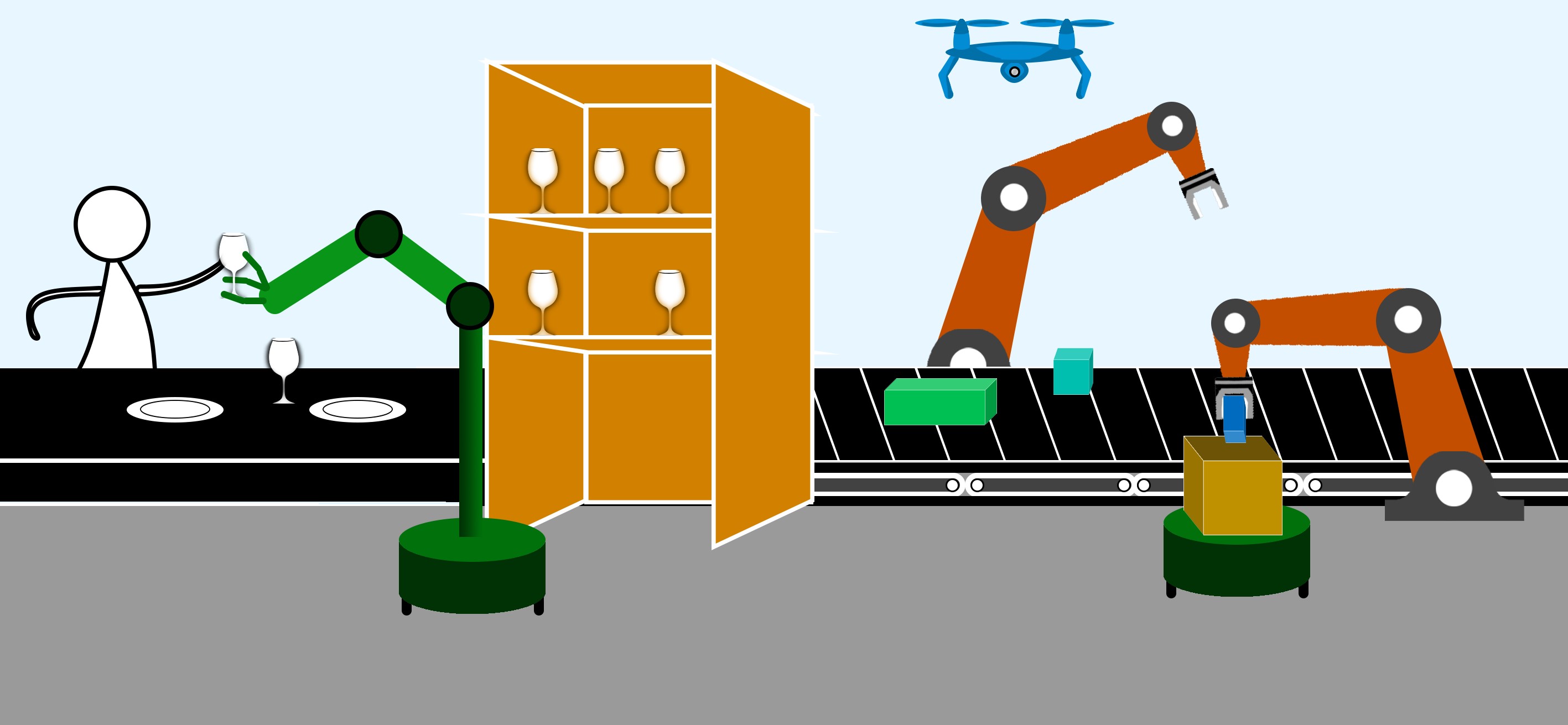
Multiple positions for research opportunities in computational problems in robotics are available at the School of Computing, ANU.
For more details, please email me at
rahul (dot) shome (at) anu (dot) edu (dot) au .
My office is CSIT 108 N315 if you want to drop by for a chat.
You will find related past work and several motivating videos and publications at
https://rahulsho.me
Subproject 1: Policies and Planning
Exploration of diffusion policies and learned controllers within task and motion planning framework as an extension to state of the art task and motion planning and execution.
Subproject 2: Uncertainty and Planning
Incorporation of uncertainty from modeled or learned distributions in robotic planning and reasoning.
Subproject 3: Humans and Planning
Exploration of human-robot interactions within robot task-level reasoning.
Subproject 4: Logic and Planning
Connections between PDDL, VLMs, and task and motion planning.
Goals
Majority of the project will focus on developing algorithmic frameworks for task and motion planning. Task and motion planning refers to category of algorithms that robots use to compute actions and motions to solve tasks. For more information about the intuition behind task and motion planning, try out this online demo at https://rahulsho.me/tamp
There are three key subgoals in this project. You can choose to engage with one or more of them:
- Motion planning: Computational processes for the robot to move effectively and robustly
- Task and motion planning: Combining aspects of solving multi-step tasks using robots
- Human factors: Exploring interfaces between robotic planning problems and human factors like preferences, interactions, privacy, and ethics.
Skills
Programming experience in
C++ and Python is recommended.
(Optional experience) Any exposure to the following
- AI planning,
- heuristic search,
- graph theory,
- algorithms,
- and data structures will be a plus.
(Optional experience) Mathematical background in the following
- discrete math,
- optimization, or
- differential geometry
- machine learning can also be relevant.
If you tick any of these boxes or simply find robots interesting, this project might be for you.
Background
Robotic Planning Algorithms: Visit my website for a detailed list of research relevant publications https://rahulsho.me/pubs
There you will find an overview of the different elements of robotics that introduce interesting variants of the planning problem. Before that, it will be important to understand what planning is—deliberative processes that find a sequence of valid goal directed steps. In robotics, I am specifically interested in task and motion planning algorithms that can apply to collaborative scenarios involving teams of robots and even humans.
The various aspects of robotics that will be relevant (depending upon the interest of the student only a subset of these will be covered)
- motion planning
- multi-robot planning
- object rearrangement
- manipulation planning
- task and motion planning,
- sampling-based planning
- human-robot interactions
Takeaways
The algorithms within the project will initially involve development in C++ and expose the student to bleeding edge software and tools in Robotics, AI, and Computer Vision like
- Robot Operating System,
- Open Motion Planning LIbrary,
- Point Cloud Library,
- OpenCV,
- Gazebo,
- pyBullet,
- PDDL, and others.
Robotics is inherently very interdisciplinary and initial stages of the projects will involve simulators where algorithms can be evaluated. These tools are of interest to employers who often use these or similar tools within their robotic automation pipelines.
The student will also gain research expertise in
- sampling-based planning algorithms,
- high-dimensional search strategies, and depending upon the interests of the student also explorations of
- stochastic processes,
- topology,
- optimization,
- AI planning,
- human factors research,
- and other areas.
